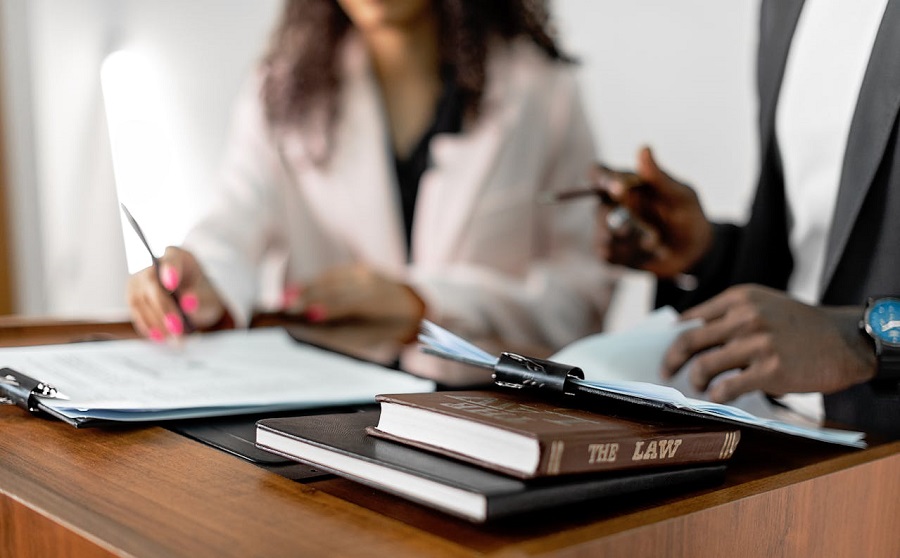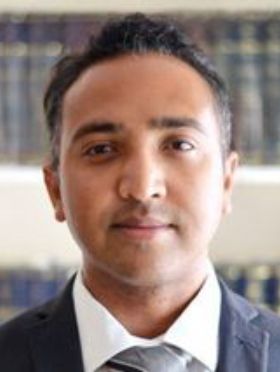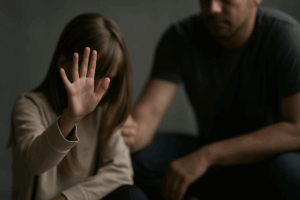Reporting rape and sexual assault in the UK: Process, evidence, and support

If you’re reading this, something devastating may have happened to you, and you’re wondering what comes next. Can you report days or weeks later? Will you be believed? What if there’s no physical evidence? These questions are valid, and you deserve clear answers. Reporting rape or sexual assault is your choice alone, but understanding the process, from immediate medical care and rape support to making a rape report, gathering evidence, and accessing rape compensation, gives you back some control. Whether rape allegations lead to a rape conviction or not, specialist sexual offence solicitors stand beside rape victims throughout sexual assault reporting, protecting your rights when you need it most.

Key Takeaway: Can I report rape weeks or years later?
Discover your reporting options, legal rights, and support pathways.
Reporting sexual offences: Your options
Before making a rape report, prioritise your safety: get to somewhere secure, seek urgent medical attention if injured, and preserve evidence by avoiding washing or changing clothes if possible. These first steps matter, but they don’t dictate your reporting timeline. You can report hours, days, months, or even years later.
Your three main reporting routes are:
- Reporting to the police: Call 999 in an emergency or 101 for non-urgent reports. Specially trained officers will arrange a video-recorded interview at your pace, investigate rape allegations thoroughly, and collect forensic evidence.
- Sexual Assault Referral Centres (SARCs): These specialist clinics offer medical examinations, evidence collection, emergency contraception, and STI testing without requiring an immediate police report. SARCs store forensic evidence anonymously for months while you decide, giving rape victims crucial breathing space and rape support alongside healthcare.
- Third-party and anonymous reporting: Organisations like Rape Crisis allow confidential reporting without police involvement. Some forces offer anonymous reporting systems where your information helps identify serial offenders without revealing your identity. These pathways provide rape support whilst you maintain control over formal sexual assault reporting.
Evidence collection in sexual offence cases
Evidence strengthens rape allegations and increases the likelihood of rape conviction, but every case is different; lack of physical evidence doesn’t mean your account won’t be believed. Police and SARCs collect multiple types of evidence to build the fullest picture possible. Professionals guide you through what’s needed and why.
The three main evidence types are:
- Forensic evidence and medical examinations: A forensic medical examination at a SARC involves collecting DNA samples, photographing injuries, and documenting physical signs of assault. This includes swabs from your body, clothing fibres, and bodily fluids. The examination is conducted by specially trained doctors or nurses who prioritise your comfort. You can pause, stop, or have a support person present. Evidence collected within seven days is most viable, though later examinations can still prove valuable.
- Digital evidence: Text messages, emails, social media conversations, dating app interactions, CCTV footage, and phone records form crucial digital evidence. Screenshots of threatening messages, location data, and online communications establish timelines and context around rape allegations. Police digital forensics teams can recover deleted messages and trace IP addresses, so don’t worry if you’ve deleted conversations; technology often leaves retrievable traces.
- Witness statements and documentation: Anyone you told about the assault, friends, family, colleagues, medical staff, can provide corroborating evidence through witness statements. Your own contemporaneous notes, diary entries, or messages sent immediately after strengthen your account. Even if no one witnessed the assault itself, testimony about your emotional state or visible distress afterwards supports rape victim credibility during investigations.
The legal process after reporting rape
Once you’ve made a rape report, the criminal justice system follows structured stages, but timelines vary enormously, often taking months or years. You’ll have a dedicated officer keeping you informed, though the pace rarely matches your need for closure.
The three key stages are:
- Police investigation stage: Officers gather evidence through witness interviews, forensic analysis, and digital forensics. They’ll question the accused and assess whether there’s sufficient evidence to refer your case onwards. Investigations typically take 3-6 months but complex cases can extend far longer. Police must meet evidential thresholds before passing files to prosecutors.
- Crown prosecution service review: The CPS independently reviews evidence using two tests: is there realistic prospect of conviction, and is prosecution in the public interest? If rape allegations don’t proceed, it doesn’t mean you lied; it means evidential standards weren’t met for court. CPS decisions take weeks to months, and you’ll receive written explanations.
- Court process and trial: If charged, cases transfer to Crown Court for trial. You’ll give evidence via video link or behind screens with special measures protecting your identity. Cross-examination challenges your account, but defence questioning doesn’t reflect on your truthfulness. Rape conviction rates remain low (around 1.6% of reported cases reach guilty verdicts), though testifying holds perpetrators accountable regardless.
Ongoing support services for survivors
Surviving rape or sexual assault isn’t just about the legal process; it’s about rebuilding your life, and you shouldn’t do that alone. Rape support services exist to help you heal, whether or not you’ve reported to police. These resources remain available throughout investigations and long afterwards when trauma resurfaces.
Three essential support pillars are:
- Counselling and therapy: Specialist trauma-focused therapy through Rape Crisis centres, SARCs, or NHS sexual assault services helps process what happened without judgment. Free counselling is available regardless of whether you’ve made a rape report. Your GP can expedite NHS referrals, though waiting lists vary regionally.
- Victim compensation claims The Criminal Injuries Compensation Authority (CICA) provides rape compensation between £1,000-£500,000 depending on injury severity and psychological impact. You can claim whether or not rape allegations led to rape conviction. Applications must be submitted within two years, though exceptions exist for childhood abuse.
- National helplines and local support networks: Rape Crisis England & Wales (0808 500 2222), The Survivors Trust, and Victim Support offer 24/7 confidential rape support. Local independent sexual violence advisors (ISVAs) attend police interviews, explain court processes, and connect you with practical assistance. These advocates support you throughout sexual assault reporting and beyond.
Do I need a solicitor to report a sexual offence?
You don’t legally need a solicitor to make a rape report, but specialist legal representation protects your interests when the system feels overwhelming.
- Protecting your rights during investigations: Solicitors ensure police follow proper protocols, challenge inappropriate questioning, and intervene when disclosure requests for medical records or phone data become excessive. They prevent sexual assault reporting from becoming re-traumatising.
- Maximising rape compensation claims: CICA applications involve complex criteria and strict deadlines. Specialist solicitors gather medical evidence, psychological assessments, and impact statements that secure maximum rape compensation.
- Navigating court and appeals: Solicitors prepare you for cross-examination, challenge irrelevant sexual history evidence, and ensure special measures protect you in court. When rape allegations don’t result in rape conviction, they pursue Victims’ Right to Review or advise on civil claims.
FAQs
- Can I report rape if I was drinking or using drugs at the time? Being intoxicated doesn’t invalidate rape allegations; consent cannot be given when too impaired. Your substance use doesn’t make the assault your fault or weaken your case.
- What happens if I want to withdraw my rape report? You can withdraw your statement anytime, though police may continue if they have independent evidence.
- How long do I have to wait for a rape conviction outcome? Cases typically take 12-24 months from rape report to trial. CPS charging decisions alone take 3-6 months.
Reporting rape takes immense courage, but you don’t walk this path alone. From making your rape report to accessing rape compensation and rape support, knowing your rights and options empowers you. Specialist solicitors ensure justice processes respect your dignity throughout.
Legal support for rape victims!
Qredible’s network of specialist sexual offence solicitors understands the trauma you’ve experienced and fights to protect your rights throughout sexual assault reporting and beyond.
KEY TAKEAWAYS:
- Rape victims can report through police, Sexual Assault Referral Centres offering medical care without immediate police involvement, or third-party anonymous services, all providing rape support at your pace.
- Evidence includes forensic examinations, digital communications, and witness statements; the legal process involves police investigation, CPS review, and potential Crown Court trial with rape conviction rates around 1.6% of reported cases.
- Support services include free trauma counselling, rape compensation claims through CICA (£1,000-£500,000), 24/7 helplines, and specialist solicitors who protect rights throughout sexual assault reporting and maximise rape compensation awards.
Articles Sources
- rapecrisis.org.uk - https://rapecrisis.org.uk/get-help/reporting-to-the-police/
- police.uk - https://www.police.uk/ro/report/rsa/alpha-v1/v1/rape-sexual-assault-other-sexual-offences/
- cps.gov.uk - https://www.cps.gov.uk/rasso-guide/how-we-make-decision-what-do-your-case-0
- devon-cornwall.police.uk - https://www.devon-cornwall.police.uk/ro/report/rsa/alpha-v1/advice/rape-sexual-assault-and-other-sexual-offences/what-happens-after-report-rape-sexual-assault/
Do you need a solicitor?
Find a solicitor on Qredible in just a few easy steps





















